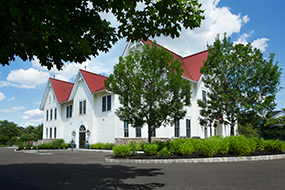The Veteran’s Administration (“VA”) has been forced to address traumatic brain injury suffered by returning war veterans. On December 10, 2012, the Veterans’ Affairs Department officially recognized, in an administrative ruling, the association between traumatic brain injury and five separate diagnosable illnesses. As a result of this rule, if a veteran who suffers a service connected traumatic brain injury later suffers one of five separate diagnosable illnesses, that secondary illness will be considered service connected as well.
This new rule is scientifically based. Citing the National Academy of Science IOM report, Gulf War and Health Volume 7, “Long-Term Consequence of Traumatic Brain Injury”, the IOM concluded that there was sufficient evidence of a causal relationship between moderate or severe levels of TBI and diagnosed unprovoked seizures; Parkinsonism; dementias (including pre-senile dementia of the Alzheimer-type and post traumatic dementia); depression (which also is associated with mild TBI) and diseases of hormone deficiency which may result from hypothalamo-pituitary changes.
In short, the VA now recognizes five diagnosable illnesses as service related injuries: (1) Parkinsonism following moderate or severe TBI; (2) unprovoked seizures following moderate or severe TBI; (3) dementias within fifteen years of TBI; (4) depression, if it manifests within three years of moderate or severe TBI or within twelve months of mild TBI; and (5) diseases of hormone deficiency which result from hypothalamo-pituitary changes manifest within twelve months of moderate or severe TBI.
So, how does the VA determine whether a brain injury is classified as mild, moderate or severe? The factors used by the VA to determine severity include: (1) structural imaging, such as functional magnetic resonance imaging (fMRI), diffusion tensor imaging (dTI), positron emission tomography (PET); (2) duration of alteration of consciousness/mental state; (3) duration of loss of consciousness; (4) duration of post traumatic amnesia; (4) score on the Glasgow Coma Scale.
The Veterans Administration defines a mild TBI as the following: Normal structural imaging; loss of consciousness 0-30 minutes; alteration of consciousness from a moment up to 24 hours; duration of post traumatic amnesia 0-1 day; Glasgow Coma Scale 13-15.
Moderate TBI is defined as normal or abnormal structural imaging; loss of consciousness greater than 30 minutes and less than 24 hours; alteration of consciousness greater than 24 hours; post traumatic amnesia greater than one day and less than 7 days; and Glasgow Coma Scale 9-12.
Severe TBI is defined as normal or abnormal structural imaging; loss of consciousness greater than 24 hours; post traumatic amnesia greater than 7 days; and Glasgow Coma Scale 3-8.
The determination of the severity level is based upon the traumatic brain injury symptoms at the time of injury or shortly thereafter, rather than at the current level of functioning. The VA will not require that the traumatic brain injury meet all the criteria listed under a certain severity level in order to classify the TBI at that severity level. If a TBI meets the criteria relating to loss of consciousness, post traumatic amnesia or Glasgow Coma Scale in more than one severity level, then the VA ranks the TBI at the highest of those levels.
These are important findings. Under 38 USC Section 1110, the Veterans’ Administration may only grant service connection “for disability resulting from personal injury suffered or disease contracted in line of duty.” Similarly, Section 1310(a) states, “when any veteran dies from a service connected or compensable disability, the secretary shall pay dependency and indemnity compensation to such veteran’s surviving spouse, children and parents.” Section 3310(a) states “a disability which is proximately due or the result of a service connected disease or injury shall be service connected. When service connection is thus established for a secondary condition, the secondary condition shall be considered a part of the original condition.”
Therefore, if you or a family member has suffered a traumatic brain injury that is service connected, the VA administration recognizes that benefits are payable for diseases scientifically proven to follow traumatic brain injury.
The VA’s recognition that other medical problems can follow the suffering of a brain injury is significant for the advocates of persons suffering a brain injury. These potential future problems must be considered by the medical team treating the brain injured person and any lawyer working to obtain fair compensation for his or her past and future harms and losses.

